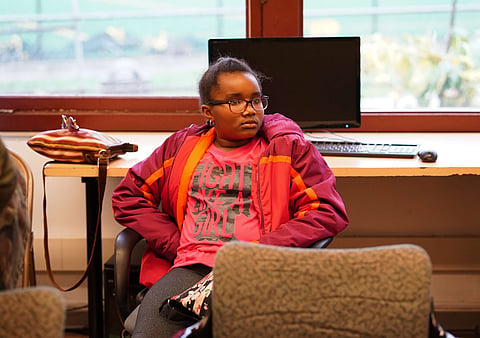More Details Emerge About Black Brilliance Project's Research Plan
by Paul Kiefer
(This article previously appeared on PubliCola and has been reprinted under an agreement.)
PubliCola has obtained a copy of the King County Equity Now (KCEN) work plan for their public safety research project that's intended to lay the groundwork for a participatory budgeting process next year. About $30 million of the $1.5 billion general fund budget is supposed to be allocated using participatory budgeting — a process that enables the public to vote on which projects and priorities they want to fund — next year.
The Seattle City Council finalized a $3 million contract with Freedom Project Washington, a nonprofit that offers programs inside and outside prisons to help with reentry and prevent re-incarceration, to fiscally sponsor and oversee KCEN's research last week. With the contract finalized and the work plan submitted, Freedom Project Washington now has access to the first $1,250,000 of that total. Freedom Project Washington is allowed to subcontract with other groups to conduct parallel research. Currently, though, KCEN is the group's only subcontractor.
The work plan offers the most detailed glimpse yet into the workings of the Black Brilliance Research Project, which KCEN launched in mid-September. KCEN has hired more than 100 paid researchers — largely Black youth — who will work until at least next spring and present findings from their research to the Council twice: once in December and again in the first quarter of 2021.
The work plan includes a step-by-step guide for the new researchers, for whom KCEN hopes the experience will be an "opportunity for personal and community growth." The instructions give the researchers significant leeway in devising their own research areas, questions and methods.
Broadly, the researchers are responsible for studying the "community safety" and "community health" priorities of specific demographic groups; the work plan names "Afro-Latinx people who use wheelchairs" or "second-generation Somali youth" as examples of possible focus areas. The work plan also outlines possible methods for answering research questions: for instance, to study the effectiveness of community response teams as an alternative to 911 responders, the work plan suggests that researchers could measure changes in 911 use after the establishment of a community response team.
In September, KCEN launched an online survey, available in 15 languages, to determine what kind of barriers exist for potential research participants. Since September, 850 people have taken the survey: over half of the respondents have been Black, and a similar proportion have been younger than 34. According to the survey's findings, more than half of potential participants would need help paying for gas to attend research sessions, roughly half requested help paying for groceries, and more than a third requested access to high-speed internet, laptops, or tablets.
Both the survey and the group's tentative budget reflect an assumption that much of the research would take place at in-person community meetings and focus groups. According to the "Blueprint for Divestment/Community Reinvestment" released by KCEN and Decriminalize Seattle last summer, the group intended to spend more than $200,000 on transportation and childcare to help research participants attend in-person meetings.
KCEN has not responded to PubliCola's questions about how they are adjusting their methods to reflect skyrocketing COVID-19 infections and heightened restrictions on in-person gathering. That said, the group has repeatedly noted that they intend to spend a sizeable portion of the contract dollars to improve internet and computer access for potential research participants, which would become essential if the Black Brilliance Research Project shifts to an online-only model.
The work plan does not include a clear explanation of how the research findings will inform the structure of next year's participatory budgeting process, but it does include a list of preliminary recommendations for changes to the City's budget priorities, based on feedback from Black respondents to the project's surveys. These priorities include reducing the size of the Seattle Police Department, more investment in community-based alternatives to policing, and less spending on "government responses to harm," such as social workers employed by the City.
Paul Kiefer is a journalist, historian, and born-and-bred Seattleite. He has published work with KUOW, North Carolina Public Radio, and The Progressive magazine, and he is currently working on a podcast for KUAF in Fayetteville, Arkansas. He was recently hired on as the police accountability reporter for PubliCola.
Featured image: A 2018 Seattle Black Mental Health Fair. (Photo: Susan Fried)
Before you move on to the next story . . . please consider that the article you just read was made possible by the generous financial support of donors and sponsors. The Emerald is a BIPOC-led nonprofit news outlet with the mission of offering a wider lens of our region's most diverse, least affluent, and woefully under-reported communities. Please consider making a one-time gift or, better yet, joining our Rainmaker Family by becoming a monthly donor.Your support will help provide fair pay for our journalists and enable them to continue writing the important stories that offer relevant news, information, and analysis. Support the Emerald!
Help keep BIPOC-led, community-powered journalism free — become a Rainmaker today.


